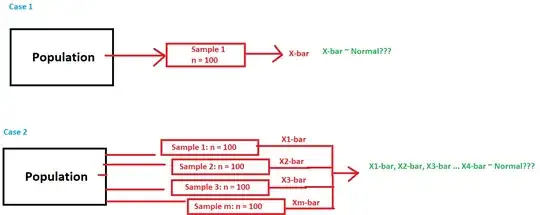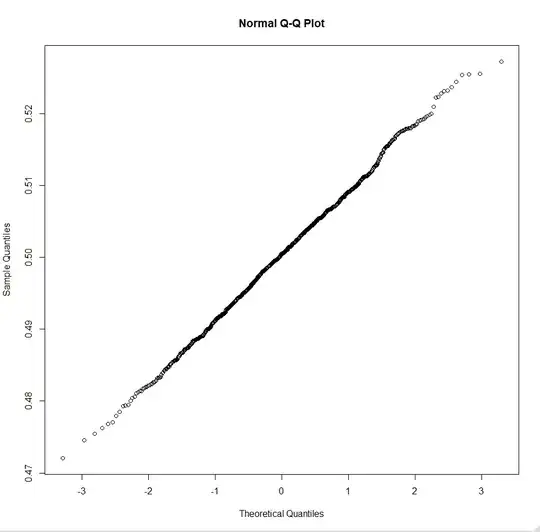This is a question that I am struggling to understand.
- Suppose there is a university with 100,000 students (population)
- I take a sample of 100 students and measure the height of each student
- Then, I take the average height of these 100 students.
- Finally, I calculate the variance of this sample average and calculate a 95% Confidence Interval for this sample average
This leads me to my question:
- Even though I interviewed 100 students - effectively, I only have a single sample
- As I understand, the Central Limit Theorem states that the mean of a (large enough) sequence of samples will be Normally Distributed - Thus, is it correct to use the Central Limit Theorem in this question to construct a Confidence Interval for the average height of the entire population?
In this problem, I understand that I can easily calculate the Standard Deviation of the sample itself - that is, how much does the height of any given student in the sample deviate on average from the average height of all students in the sample.
But in this problem, is it really correct to use the Central Limit Theorem to calculate the Confidence Interval of the average height - when all I have is a single sample?
I think the Central Limit Theorem would be more applicable if many people each took a single sample of size 100 - and then calculated the average height of students in the sample they took. Then, you would have a sequence of sample means - and in this case, the Central Limit Theorem could be used to calculate the Confidence Interval of the sample mean.
Is my reasoning correct?
Thanks!
Note: I have attempted to illustrate both situations - in Case 1, I think the Central Limit Theorem does not apply. In Case 2, I think the Central Limit Theorem does apply:

